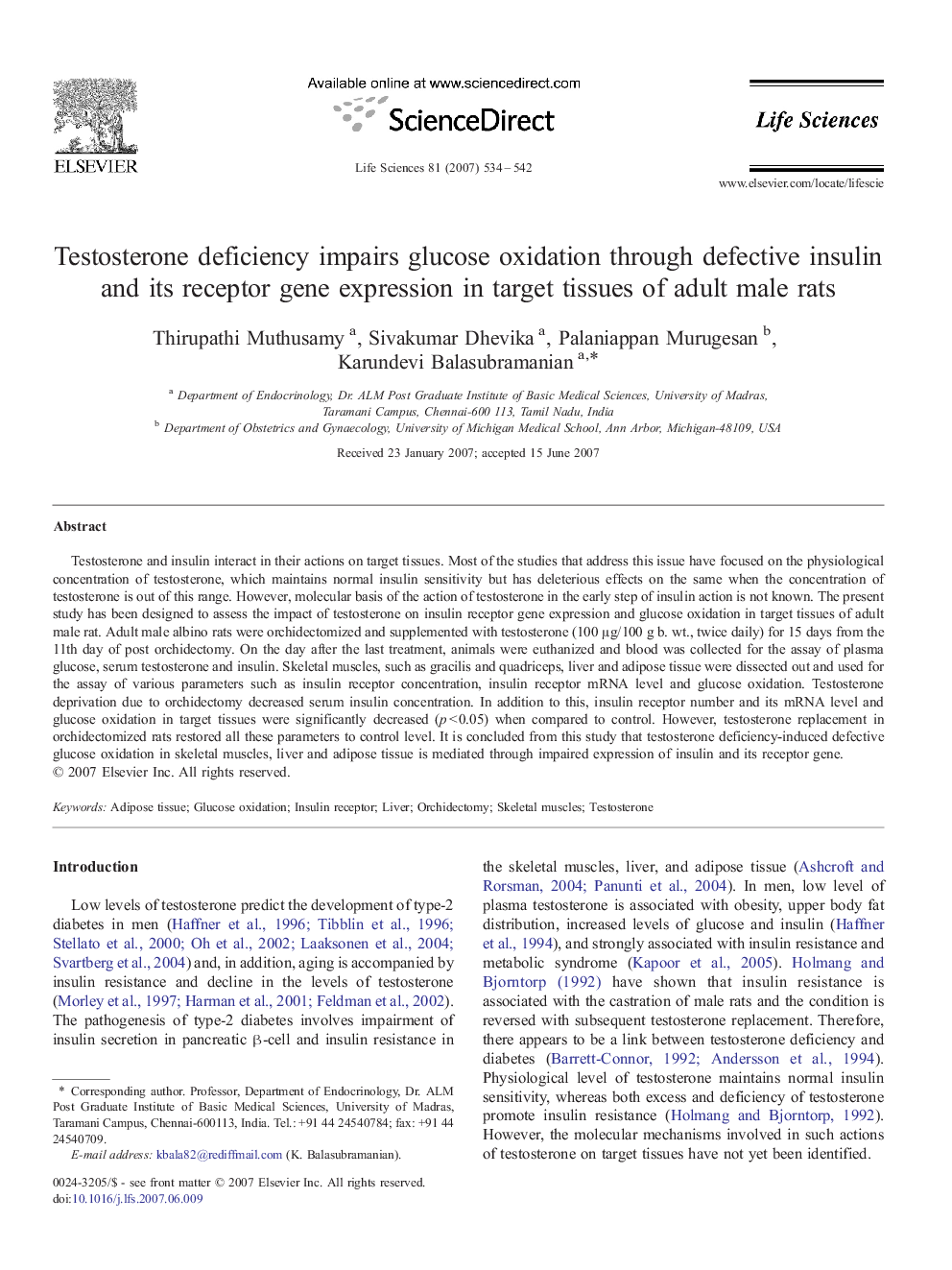| Article ID | Journal | Published Year | Pages | File Type |
|---|---|---|---|---|
| 2553270 | Life Sciences | 2007 | 9 Pages |
Testosterone and insulin interact in their actions on target tissues. Most of the studies that address this issue have focused on the physiological concentration of testosterone, which maintains normal insulin sensitivity but has deleterious effects on the same when the concentration of testosterone is out of this range. However, molecular basis of the action of testosterone in the early step of insulin action is not known. The present study has been designed to assess the impact of testosterone on insulin receptor gene expression and glucose oxidation in target tissues of adult male rat. Adult male albino rats were orchidectomized and supplemented with testosterone (100 μg/100 g b. wt., twice daily) for 15 days from the 11th day of post orchidectomy. On the day after the last treatment, animals were euthanized and blood was collected for the assay of plasma glucose, serum testosterone and insulin. Skeletal muscles, such as gracilis and quadriceps, liver and adipose tissue were dissected out and used for the assay of various parameters such as insulin receptor concentration, insulin receptor mRNA level and glucose oxidation. Testosterone deprivation due to orchidectomy decreased serum insulin concentration. In addition to this, insulin receptor number and its mRNA level and glucose oxidation in target tissues were significantly decreased (p < 0.05) when compared to control. However, testosterone replacement in orchidectomized rats restored all these parameters to control level. It is concluded from this study that testosterone deficiency-induced defective glucose oxidation in skeletal muscles, liver and adipose tissue is mediated through impaired expression of insulin and its receptor gene.
